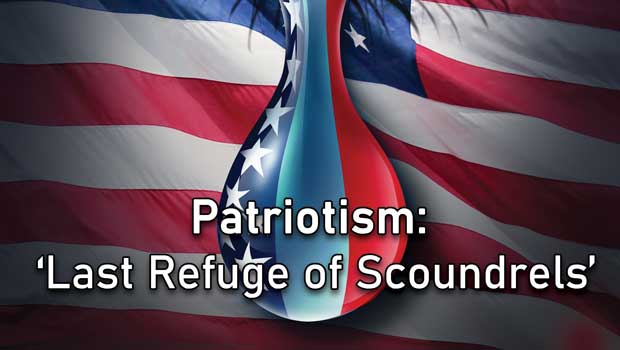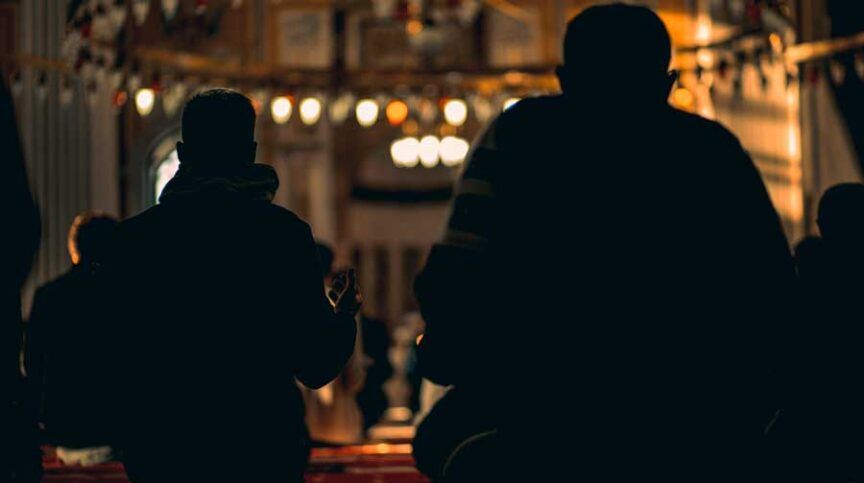Since the generation of the U.S. Founding Fathers, the identifying qualities of a Patriot have evolved. At the time of the American Revolution, a Patriot was generally considered anyone who expressed disdain for the continued rule of King George III of England over the colonies. Colonials choosing to maintain a status quo relationship with British rule, prior to the American Revolution, were aptly referred to as Loyalists. As the fledgling country struggled with formulating a national identity independent from its former colonizer, the United States, ironically, wrote into its founding documents one of the very same principles that led to its violent rejection of British rule— the exclusive right of the aristocratic class to rule over the citizenry. Rather than establish a monarchy like in Britain, American Founding Fathers restricted participation in the electoral process to White, property-owning males. Most of the immigrants from Europe and enslaved Africans were eliminated from the electoral process by one or both statutory requirements.
This nation must never accept patriotism being defined by freedom-denying, . . .
In the ensuing years, “Patriot” became a rather generic label for any American citizen who devoutly, sometimes blindly, accepted the federal government’s designation of individuals or ideological groupings as “enemies of the state.” American Patriots were once identified by the federal government as mostly northern citizens who opposed slavery and its westward continental expansion. With the establishment of the Confederacy, 1861-1865, pro-slavery southerners considered themselves “true Patriots” as they conjoined the forcibly imposed practices of the trans-Atlantic slave trade with a misapplication of Biblical text to justify that despicable institution. The practice of chattel slavery in the United States presented a virtually unbridgeable dichotomy between pro-slavery defenders and abolitionists concerning the “Patriot” label. Abolitionists vociferously condemned slavery as being incompatible with American values. Apologists of slavery promoted slavery as a patriotic virtue.
Following the success of the Russian Bolshevist Revolution in 1917, opposition to Communism became the barometer by which American patriotism was measured. Wisconsin Senator Joseph McCarthy single-handedly drove the nation into an anti-Communism hysteria with his baseless allegations that Soviet spies and sympathizers had infiltrated every segment of American society. From 1950 until his death in 1957, no American was safe from being maligned by McCarthy and his political minions as Communists or Communist sympathizers. Thousands of law-abiding American citizens had their careers, families, personal relationships, and reputations ruined by the demagogic hysteria of the McCarthy era. From 1945 to 1990, the Soviet Union-led Communist bloc and the United States-led Western bloc were engaged in the Cold War, a hostile ideological battle for political hegemony. During this period, J. Edgar Hoover, the feared, over-reaching director of the FBI, insisted that public opposition to Communism was a litmus test for whether an American was aloyal citizen.
Since at least World War II, support for our nation’s wars has been primarily predicated on appealing to the patriotic sentiments of the American public. Jingoistic propaganda and unquestioning media support of war have created a national consciousness that is supportive of militancy. Yet, millions gathered, to no avail, across the nation in 2003 in opposition to President George W. Bush’s intention to occupy the oil-rich sovereign nation of Iraq.
The number of active anti-government militia groups in America has proliferated since the election of President Obama in 2008. Of the 998 anti-government militia groups listed in 2015 by the Southern Poverty Law Center, most of these groups identify themselves as “Patriots.” These white supremacist groups have appropriated the Patriot label to the extent that the term increasingly becomes synonymous in popular culture with white supremacists and anti-government xenophobes.
Few minority populations in the U.S. have had a more complicated relationship with this country than the Muslim community, today being more distrusted and vilified as ever.Yet, according to the Department of Defense, there are presently 5,896 self-identified Muslims serving in the U.S. armed forces. There is empirical data to suggest that Muslims have fought in defense of this country in every war since the Revolutionary War. The first nation to recognize the newly-independent United States of America was the Muslim country of Morocco, ruled at that time by King Muhammad Abdullah. Included in the Continental Army serving under General George Washington were Bampett Muhammad, Salem Poor, and Benjamin Ishmael. Yusuf bin Ali (Joseph Benehaley) fought alongside General Sumpter in the Continental Army. Muhammad Ali ibn Said (Nicolas Said) was a member of the historic 55th All-Colored Regiment from Boston that fought in the Civil War in the Union Army. In more recent times, Chaplain Yusuf Yee served this country as a chaplain to Muslim detainees at Guantanamo Bay, Cuba, one of the most difficult assignments in the world.
In 1775, the English writer and social critic, Dr. Samuel Johnson, was quoted as saying, “Patriotism is the last refuge of the scoundrel.” This nation must never accept patriotism being defined by freedom-denying, bigoted scoundrels draping themselves in the American or Confederate flag to deflect from their true intentions to deny life, liberty, and the pursuit of happiness to some of America’s citizens.






